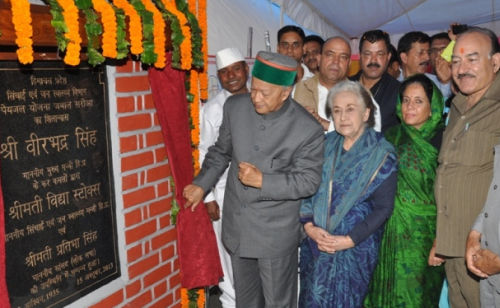Shimla: In a significant move to address the issue of illegal street vending in Himachal Pradesh, the state Legislative Assembly, led by Speaker Kuldeep Singh Pathania, has constituted a committee to draft a comprehensive street vendor policy. This decision was taken in the Assembly on September 10, 2024, as the growing presence of illegal vendors across cities has posed challenges to commuters and shop owners alike.
Industry Minister Harsh Vardhan Chauhan will chair the committee which includes Rural Development and Panchayati Raj Minister Anirudh Singh, Public Works and Urban Development Minister Vikramaditya Singh, MLAs Anil Sharma, Satpal Satti, Randhir Sharma, and Harish Janartha. The Principal Secretary/Secretary of the Urban Development Department will serve as the ex-officio secretary of the committee. Their mandate is to create a street vendor policy that caters to both the local population and outside vendors, aiming to streamline the system and provide relief to those affected.
The committee’s primary function is to submit its findings and recommendations to the government, focusing on balancing vendors’ livelihoods with the need to maintain public spaces and order in urban areas.
The Illegal Vendor Crisis
Shimla has been at the forefront of the illegal vending issue. With its narrow streets and high influx of tourists, the problem has worsened, causing severe congestion and inconvenience for both residents and visitors. Illegal vendors have occupied key public areas, often disrupting traffic flow and creating challenges for pedestrians. In some cases, local shop owners have further exacerbated the issue by renting space in front of their shops to these vendors in exchange for hefty fees, contributing to the growing menace.
Other cities in Himachal Pradesh, including Dharamshala, Manali, and Solan, are facing similar problems. In these towns, the situation mirrors that of Shimla, where illegal vendors have taken over key markets and streets, creating friction with shopkeepers and adding to the chaos on busy roads. The lack of regulation has allowed these vendors to operate unchecked, which has led to growing complaints from citizens.
The Need for a Policy
The new street vendor policy aims to regulate the presence of vendors, ensuring they operate in designated areas without disrupting public life. This move is expected to bring relief to commuters who face daily difficulties navigating streets crowded with illegal stalls. Additionally, it would offer protection to shop owners, many of whom have seen their businesses affected by the presence of unregulated vendors encroaching on their spaces.
If implemented effectively, the policy could also provide a legal framework for street vendors to earn their livelihoods without fear of eviction or harassment, while ensuring that urban spaces are better managed. The committee is expected to take into account the interests of all stakeholders, creating a balanced solution that benefits both the public and the vendors themselves.
As the problem has escalated in recent years, this initiative is seen as a timely and much-needed step toward restoring order in Himachal Pradesh’s urban areas. The committee’s findings and subsequent policy could become a blueprint for tackling similar issues in other states, offering a model for sustainable urban management.









